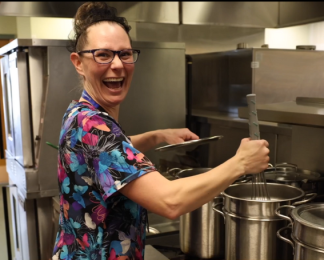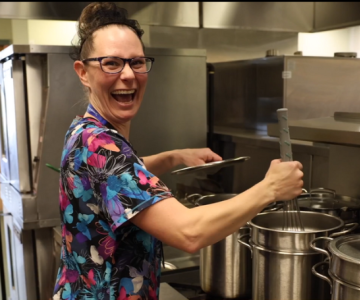General incentives
Find out if you qualify for British Columbia and Canadian health-care worker incentives, or relocation allowance.
We have various recruitment incentives to support health-care workers with education and expenses. Learn how you can qualify.

Find out if you qualify for British Columbia and Canadian health-care worker incentives, or relocation allowance.
Qualified candidates for permanent and temporary placements may be eligible for financial relocation assistance at the time of hire (for example, two-year return of service). Dollar amount is influenced by distance and aligns with Public Sector Employers Council. Please speak with your hiring manager or recruiter during the hiring process.
Recent graduates in select in-demand occupations can have their B.C. student loans forgiven by agreeing to work at publicly-funded facilities in underserved communities in B.C., or working with children in occupations where there is an identified shortage in B.C. Check out the program details to see if you’re eligible.
Canada Loan Forgiveness Programs offer eligible recent graduates an opportunity to exchange loans for work in the community.
Eligible new employees in identified rural communities may receive up to $20,000 for a two-year return of service.
Eligible new employees accepting select difficult-to-fill vacancies in urban and metro communities may receive up to $15,000 for a two-year return of service.
Regular full-time and regular part-time employees in the Nurses' Bargaining Association (NBA), Health Science Professionals Bargaining Association (HSPBA), Facilities Bargaining Association (FBA) and Community Bargaining Association (CBA) collective agreements that work in the following eligible communities may receive up to $2,000 quarterly to a maximum of $8,000 per year.
Current sponsored training opportunities offered at Interior Health are listed below.
The Health Career Access Program (HCAP) is a paid work and training initiative for individuals seeking an entry point to employment in health. New hires will start as a Health Care Support Worker (HCSW) providing non-direct care at a long-term care, assisted living or home health site and receive paid training to become a Health Care Assistant (HCA) upon successful completion of the program.


Those with dementia need special consideration during the holidays. Read our tips and advice to make the holidays enjoyable for everyone.
/stories/supporting-loved-one-dementia-during-holidays


Loreen’s ability to keep calm under pressure, paired with her caring nature, have been integral to her success and to the quality of care that she provides.
/stories/we-are-ih-experienced-nurse-always-steps-when-needed


Many people like to do the Dry January challenge, but going dry isn't for everyone. Gain tips on reducing your alcohol consumption in the New Year and beyond..
/stories/thinking-going-dry-january-going-damp-great-option-too


As we come to the close of 2024 we pause to reflect on the year and celebrate our achievements. Watch our short video of this year’s highlights across IH.
/stories/looking-back-and-celebrating-2024


All's well that ends well: For Kelowna health unit aide JQ, this simple phrase is more than advice—it’s a way of life.
/stories/we-are-ih-health-unit-aide-brings-positivity-every-day


The winter and holiday season can bring joy, but can also bring stresses and challenges. Explore these 10 tips for supporting for mental and physical health.
/stories/10-healthy-habits-winter-and-holiday-season
Receive news and alert posts, and Stories@IH blog posts, right to your inbox!
